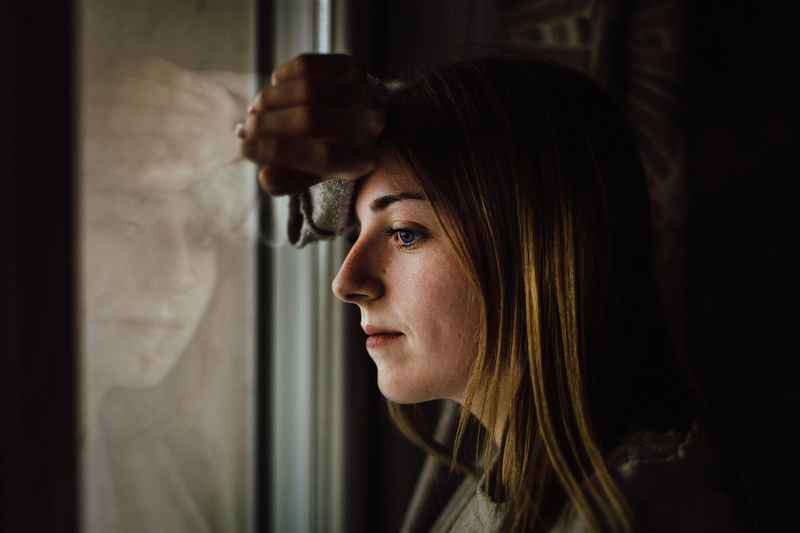Why Dwelling on the Past Holds You Back
Have you ever found yourself replaying the same scenes from your life over and over again? Maybe it’s the thrill of a big victory, like landing your dream job or winning an award. Or perhaps it’s the nostalgia of “the good old days,” a time when everything seemed simpler, brighter, or more exciting.
Then again, it might be the sting of regret over a mistake you made or the pain of how someone treated you. Maybe it’s even the embarrassment of a moment you wish you could erase. These memories, whether cherished or painful, can feel like familiar companions we’re reluctant to let go of—or like invisible weights, quietly slowing us down as we try to move forward.
The Echoes of the Past in Daily Life
Let’s consider a simple scenario. You’re meeting a new group of people, but as you walk in, your mind flashes to a time you were embarrassed in a similar situation. The confidence you had a moment ago vanishes, replaced by hesitation. Or perhaps you’re about to take a big step—start a business, move to a new city—but the voice in your head says, “Remember last time you tried something new and it didn’t work out?”
Whether it’s a triumphant memory that feeds our pride or a painful one that stirs up guilt, resentment, or regret, the past has a way of shaping how we show up in the present. These thoughts can color how we see ourselves and the choices we make. And, over time, holding onto these memories, even subconsciously, can feel like carrying an invisible backpack filled with rocks. Heavy, isn’t it?
How Dwelling on the Past Affects Us
Dwelling on the past impacts us in ways that can feel invisible at first but become undeniable over time. Emotionally, it keeps us tethered to feelings like guilt, resentment, or shame, as if we’re pressing replay on a song that evokes the same painful emotions every time.
These feelings linger beneath the surface, influencing our mood and often spilling over into our relationships or daily interactions. A simple frustration can suddenly feel overwhelming because it’s layered on top of unresolved emotions from the past.
On a physical level, the effects are just as significant. When we mentally revisit old wounds or failures, our body doesn’t distinguish between memory and reality. It responds as though the event is happening again, releasing stress hormones like cortisol.
Over time, this constant low-grade stress can wear us down, affecting our sleep, our energy, and even our overall health. It’s no exaggeration to say that dwelling on the past can accelerate aging—it’s like a hidden drain on our vitality.
Then there’s the way it shapes our sense of self. The stories we tell about our past become the lens through which we see ourselves. If we focus on moments where we felt small, we start to believe that’s who we are.
If we cling to past successes, we might feel pressure to maintain an image that no longer fits. Either way, it keeps us stuck in a narrative that may no longer serve who we are—or who we want to become.
Finally, our relationships don’t escape this influence. When we bring unresolved baggage from the past into our interactions, it acts like a shadow. Imagine trying to build trust with someone new while holding onto bitterness from a betrayal years ago. The weight of old stories can create distance, making it harder to connect authentically or move forward with openness.
These effects influence every part of life, but they all stem from one core issue: letting the past occupy too much space in our present. When we become aware of this, we create the opportunity to embrace a new way of being.

Observing the Patterns
Take a moment to reflect. Do you notice patterns in the way your thoughts revisit the past? Maybe you often replay a particular type of memory—successes that boost your ego or missteps that keep you in a loop of regret. These patterns can offer clues about what’s really going on beneath the surface.
For instance, a person who frequently recalls their achievements might unconsciously fear they’ll never reach that level again. Someone who dwells on painful memories might be trying to protect themselves from repeating those experiences, even at the cost of staying stuck.
The challenge is that every time we revisit these stories, we’re strengthening their hold on us. It’s like walking the same path in the forest over and over again—the trail becomes clearer, and it’s easier to fall into that groove.
A New Way to Look at the Past
Here’s a perspective shift to consider: The past is like a movie you’ve already seen. You can describe every scene in detail, but no matter how many times you replay it, you can’t change the script. What you can change is how you relate to it. You can choose whether to carry it forward or let it stay in the archives.
Imagine watching an old movie and realizing, “Oh, that part always makes me cry” or “That scene always makes me laugh.” You’re still the viewer, but now you have some distance. The memory exists, but it doesn’t dictate your emotions in the same way. The past loses its grip when we stop living in it and start simply acknowledging it for what it is: something that’s already happened.
The Subtle Yet Powerful Impact of Release
Now, think about the people in your life who seem burdened by the past. Maybe it’s the friend who can’t stop talking about an ex or the colleague who defines themselves by a long-ago professional failure. Do they appear lighter and freer—or weighed down and stuck? And then consider those who seem present, open, and engaged. They may have faced their own challenges, but they’ve chosen not to live in them.
When we release the hold of the past, we create space for something new. Our emotions stabilize, our relationships deepen, and even our physical health improves. It’s not about forgetting where we came from—it’s about freeing ourselves to fully embrace where we are now.
If you’re feeling ready to shift your relationship with the past, the Inner Foundation Series offers tools to help you do just that. Courses like The Art of Inner Mapping focus on increasing awareness of your thought patterns, while The Art of Conscious Action empowers you to move forward with intention and clarity. Together, they create a pathway to living a more grounded and fulfilled life.
So, ask yourself: What stories from your past are you ready to let go of? And how much lighter could life feel if you did?

